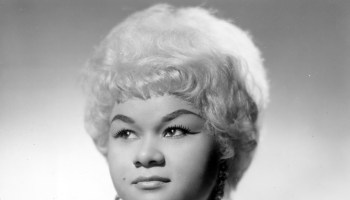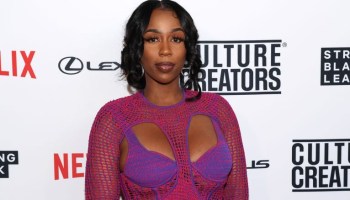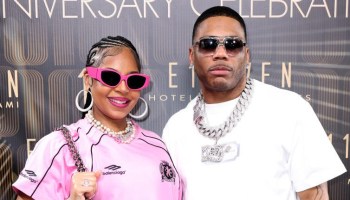In commemoration of the anniversary of the tragic terror attack on Emanuel AME Church in 2015, as well as multiple incidents of terror and police brutality around the world, Juneteenth, the historic holiday commemorating the Southern Black slaves’ emancipation, is upon us.
This day is incredibly important because, on one hand, it demonstrates to us the cyclical nature of the assaults on Black people and the liberties of Black people in our own country at the hands of White supremacists. On the other hand, it symbolizes the strength, dignity, and determination Black people have historically held in defying authority and fighting for our natural-born rights. We present to you all the facts on why Juneteenth is so crucial and special to the legacy of Black people as well as American history at large.
We spoke with historian and expert on the topic Dr. Tiffany M. Gill, associate professor of Black studies and history at the University of Delaware, so she could educate us on all of the politics surrounding Juneteenth back in 1865, how it has progressed through the years, and why it’s still important for us to celebrate in contemporary times. Here’s what she had to say during our chat:
HelloBeautiful: Aside from the most obvious significance around Juneteenth that it was the day in which Texas slaves learned they were free citizens, why else is this day significant to African-American history?
Tiffany Gill: I think it’s significant because it’s one of the few celebrations we have around Emancipation and around the significance of that. It’s a way for African-Americans to always be reminded of the long and continuing struggle for Black freedom…I think it’s a way to celebrate things that free people were most excited about reclaiming (like their families).
HB: Why did it take so long for Texans to surrender in the Civil War and give up the slaves? How did Texas have the ability to hold onto the slaves for as long as they did in spite of the change in federal law?
TG: The way to best understand that is to understand that the Emancipation Proclamation was, among other things, a military tactic. It stated that the enslaved people who were held in Confederate territory were declared free. Of course, for those who were part of the Confederacy, there was no intention on their part to comply with it. A lot of times, it gets scripted as a narrative about Black folks being in the dark for two years as if they didn’t know. But really, it was about the fact that the Union troops were not in Texas to enforce the presidential/military order of the Emancipation Proclamation. It shows, to me, how contested Black freedom was and many would argue still is. To me, when I think of the Juneteenth story, I think of it in light of this larger history about how changing laws is important and something we should fight for, but it’s also about enforcing these laws in a way that protects us.
DON’T MISS: Elizabeth Banks Can’t Take Away What Celie Means To Me
HB: How did slaves defy the restrictions of Emancipation?
TG: I think that one of the other misconceptions we have about Emancipation is that it was an event rather than something that was a contested process. African-American freed people knew that they’d have to work hard to make sure that their particular vision of freedom was upheld. That included things like economics, self-determination, the ability to own land, ability to work for pay, political rights, education…African-Americans began building religious institutions and education institutions to build things in their families and their communities that expressed freedom in ways that were meaningful to them.
HB: How specifically were Black women engaging in all of this?
TG: During Juneteenth celebrations, people would participate by wearing their fineries, braiding their hair in different ways, making jewelry out of beads. During slavery, even the choice of what to wear was often something that was dictated to you. So we can think about freedom as a legal construct, but also as a stake in personal autonomy. For African-Americans, in being able to express themselves through adornment, they’re reclaiming their bodies in some way.
HB: When did Juneteenth start losing steam? Why did it wane?
TG: Around the Great Depression, these celebrations waned and then saw a resurgence in the post Civil Rights Movement era…I’m not sure (why). My instinct is that it probably had something to do with the economic issue. There may have also been some sort of push to celebrate looking forward and looking at what possibilities there were in fighting for that.
HB: How can we still appreciate what Juneteenth is and still also be realistic about what’s going on in the 21st Century?
TG: As a historian, I can appreciate how much has changed since 1865, but also am deeply troubled by the cyclical nature of racial inequality in this nation. I think we can both celebrate and think about what our ancestors endured. We can celebrate and appreciate that the ending of slavery as a legal identity is gone but also use the moment to think: “Are we fully living up to the ideal that the freed people had on what freedom looks like?” This is not 1865 – I think we have to acknowledge that. But we also can’t fall back and say “everything is great, we have a Black president.” So I’d like to see it as a celebration, but also a call to action. Then we can honor Juneteenth and the enslaved and keep fighting for the things they thought were important.
Editor’s Note: The interview with Dr. Tiffany Gill originally ran on June 19, 2015.
DON’T MISS:
CANDID: Assessing The Health & Wellness Disparities In The LGBTQ Community
Man Arrested And Charged With Heinous Murder Of Muslim Teen
Steve Harvey Says His Dirty Water Joke Was Only For The Caller, Not The People Of Flint






















